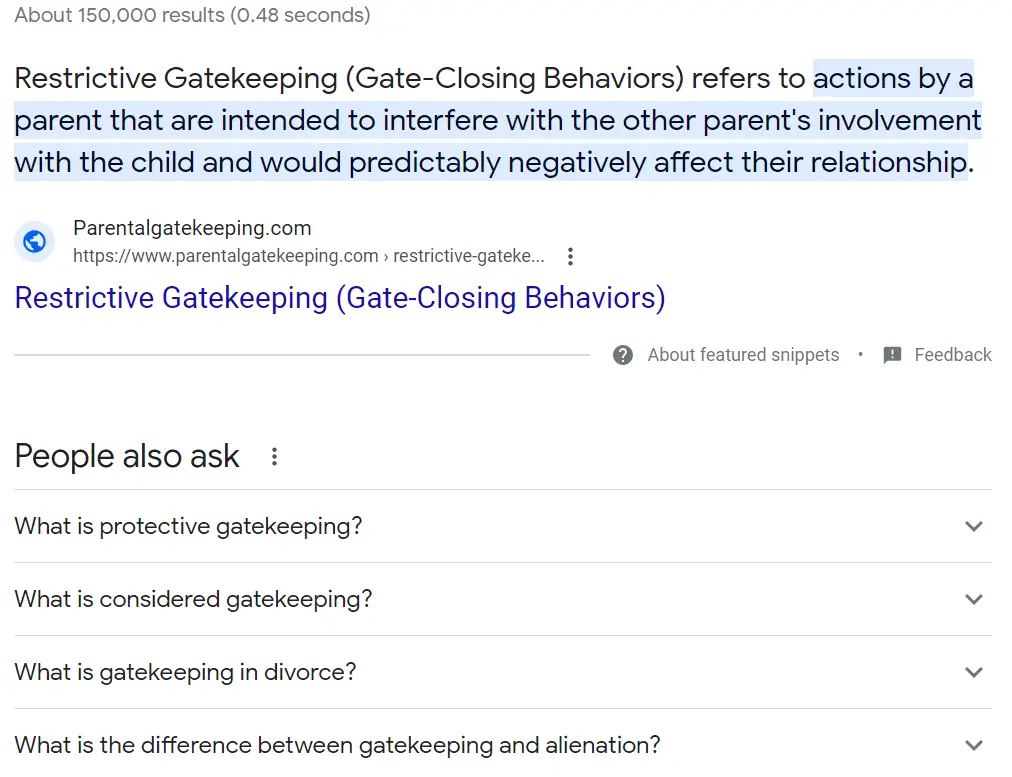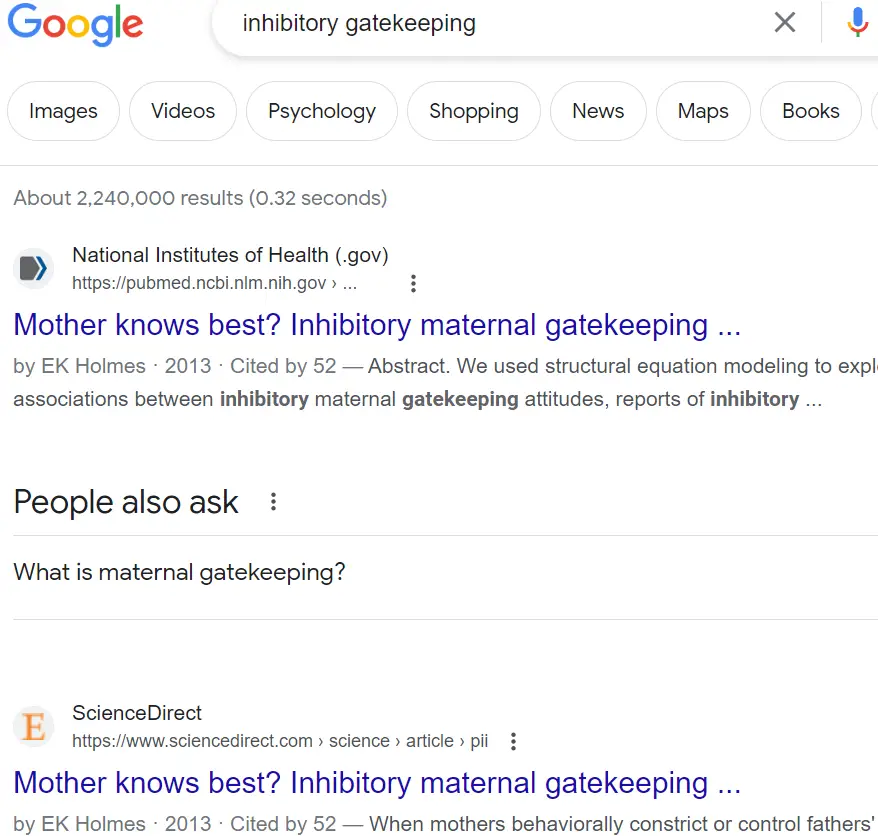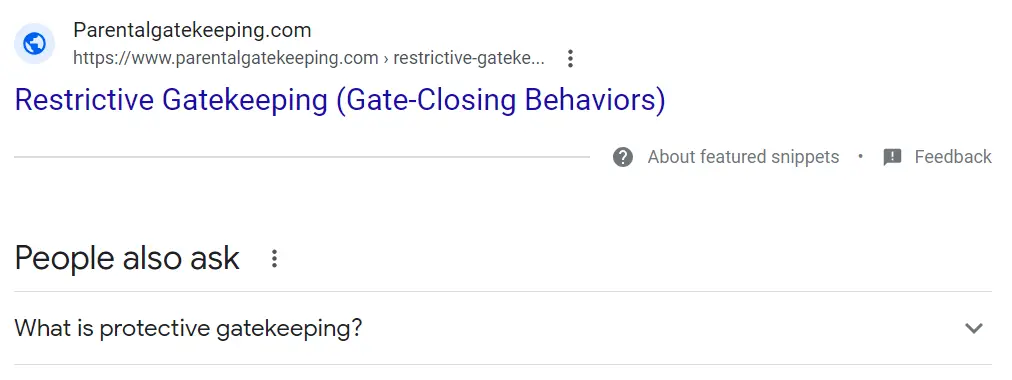“Restrictive” or “Inhibitory” Gatekeeping?
Searching Google for “restrictive gatekeeping” and “inhibitory gatekeeping” provides interesting results that provide insight into how one parent can interfere (or attempt to control) the children’s interaction with the other parent. Is it restrictive or inhibitory gatekeeping?
Restrictive Gatekeeping

Note that Google says restrictive gatekeeping “refers to actions by a parent that are intended to interfere with the other parent’s involvement with the child and would predictably negatively affect their relationship.”
In the “People also ask” section, the questions include:
- What is protective gatekeeping?
- What is considered gatekeeping?
- What is gatekeeping in divorce?
- What is the difference between gatekeeping and alienation?
Let’s answer those questions.
What is protective gatekeeping?
It is important to point out that gatekeeping is gender-neutral and can be adaptive or maladaptive. It includes both attitudes and behaviors (a good review of the topic for the Family Court Community is here). Protective gatekeeping is an adaptive form meant to protect the child in situations of domestic violence, substance abuse, or mental health issues. This informs us that not all restrictive gatekeeping is maladaptive when the children’s best interest is the focus.
What is considered gatekeeping?
Google references a blog that considers the term “gatekeeping” a viral saying (similar to gaslighting). The blog is written for the layperson and considers how to identify and manage gatekeeping in an intact marriage.
What is gatekeeping in divorce?
This question links to a Wikipedia page, which is not a good source of information.
What is the difference between gatekeeping and alienation?
Alienation is a term with a bitter history (see here for a review). Alienating behaviors are considered a form of unjustified restrictive gatekeeping but include significant psychological disturbance in the alienating parent, and the child must resist or refuse to have contact with the other parent in order for alienation to be considered.
Inhibitory Gatekeeping

A search for “Inhibitory Gatekeeping” provides more results, but a single reference floats to the top. In “Mother knows best?” (from the above search), they look at the results of inhibitory gatekeeping. It states, “(r)esults revealed that inhibitory maternal gatekeeping attitudes were positively associated with reports of inhibitory gatekeeping behaviors.”
The source of the gatekeeping is psychological control, and such control resulted in less mother-adolescent warmth. The conclusion is, that while it is known that inhibitory gatekeeping results in negative effects in father-child relationships, it is also responsible for negative effects in maternal-child relationships as well.
The single associated question when searching for inhibitory gatekeeping is: what is maternal gatekeeping?
What is Maternal Gatekeeping?
From the paper:
Maternal gatekeeping has been explored over the past two decades (Allen & Hawkins, 1999; DeLuccie, 1995). Researchers frequently conceptualize maternal gatekeeping in terms of attitudes and behaviors, distinguish between inhibitory and facilitative dimensions of gatekeeping, and discuss gatekeeping in the context of a mother’s desire for control or regulation of her partner’s parenting efforts. Maternal gatekeeping attitudes consist of mothers’ self-imposed standards and responsibilities, maternal identity confirmation, and differentiated gender roles (Allen & Hawkins, 1999). Maternal gatekeeping behaviors consist of the behaviors mothers use to restrict or facilitate fathers’ access to their children (Fagan & Barnett, 2003).
As I discussed in Gatekeeping by Narcissistic Mothers, paternal gatekeeping, while not extensively researched, has not been well described (though it is likely common in narcissistic fathers given their associated restrictive practices and attitudes). Gender-neutral terminology is indicated when referring to gatekeeping behaviors in marriage and divorce. Thus, parental gatekeeping is an appropriate term.
Conclusion
In conclusion, the question is, does the mother really know best? When she uses either restrictive or inhibitory gatekeeping attitudes and behaviors, when she controls or constricts other family members, she hurts both her and the father’s relationship with the children. This is common in family court and hurts children and parents alike.
Documentation of restrictive attitudes and behaviors is important, as are tactics and strategies to alleviate parental gatekeeping.

